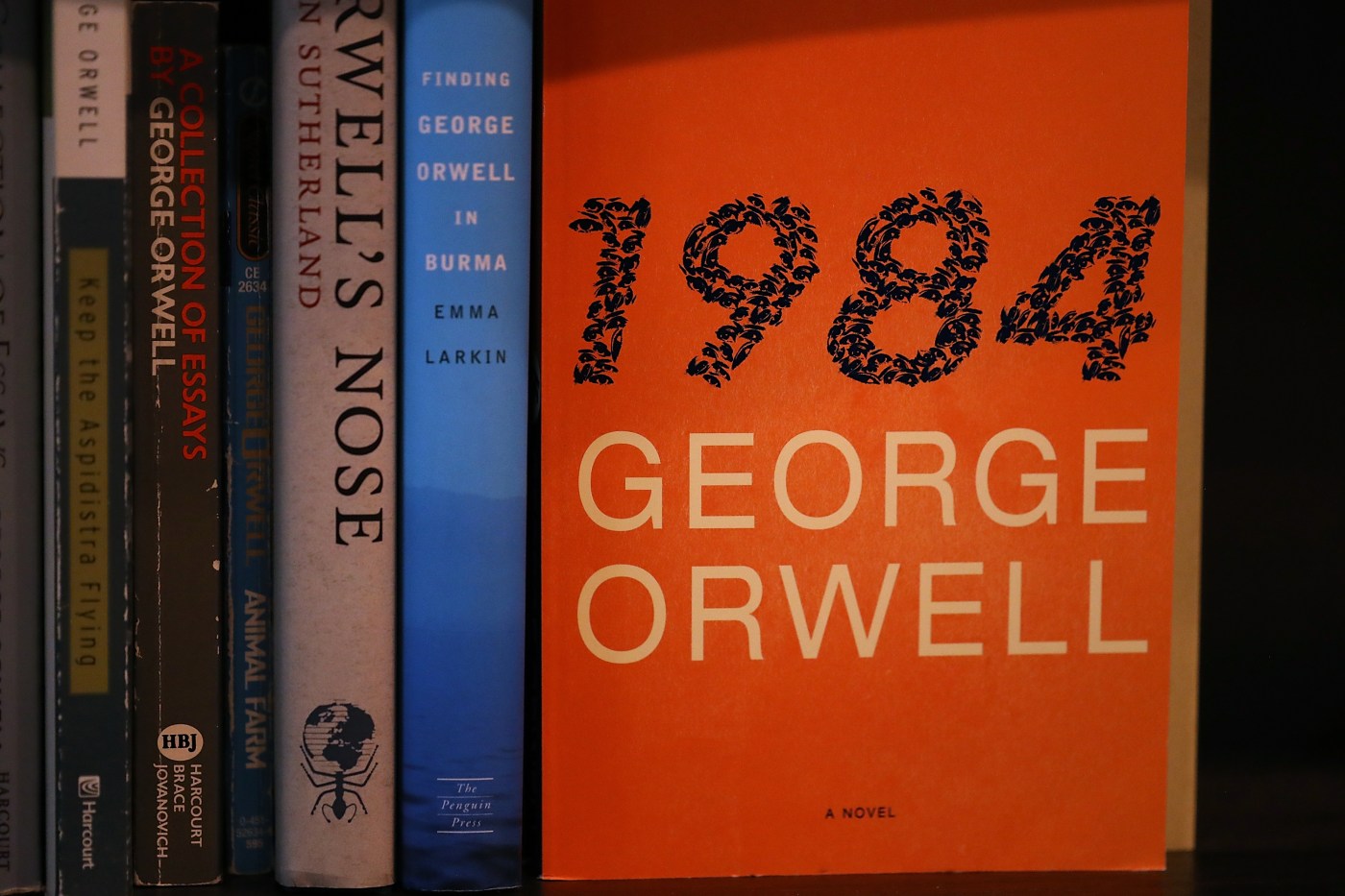
Mary Ellen Klas: Free speech on campus gets snagged in doublespeak
The opening sentence of the federal court opinion was like none other: “It was a bright cold day in April, and the clocks were striking thirteen.”
U.S. District Court Judge Mark Walker quoted the haunting first line of George Orwell’s classic novel “1984” as he struck down parts of the Florida law that prohibited colleges from teaching eight topics related to race.
The analogy was ripe. The state’s “argument is like the thirteenth chime of a clock: you not only know it’s wrong, but it causes you to wonder about everything you heard before,” Walker explained in the notes of his 2022 decision.
He concluded that Florida’s passage of the “Individual Freedom Act” (called the “Stop W.O.K.E.” Act by Gov. Ron DeSantis) allowed professors to “enjoy ‘academic freedom’ so long as they express only those viewpoints of which the State approves.” Walker proclaimed the law “positively dystopian” and declared it Orwellian “doublespeak.”
But, as Florida goes, so goes the nation. Sadly, this is true more often than most Americans want to believe, and we encountered that unfortunate reminder last month in Washington. Three university presidents were asked by a congressional committee whether statements calling for the genocide of Jews would violate their schools’ codes of conduct. Their vague and inadequate answers essentially told us: Bigotry is unacceptable but punishment is selective.
That’s because demographics are changing with more minority and LGBTQ students enrolling in higher education. Campuses that encourage collaborative learning from students of diverse backgrounds have unlocked a divine development: Students are more likely to engage, innovate and open their minds. So colleges want to make their environments more inclusive and many schools have decided that means adopting rules to eliminate toxic hate speech that can poison their educational mission.
But there is growing perception that overzealous administrators are too often using these rules as tools to exert their power over faculty or promote a political agenda. Rather than find ways to encourage discussions about objectionable points of view, some schools are silencing them.
Lynn Greenky, professor emeritus of Communication and Rhetorical Studies at Syracuse University offers some examples in The Conversation. Harvard rescinded admission offers to 10 students who posted sexually explicit messages on social media in 2017. Several colleges proposed guidelines regarding offensive Halloween costumes in 2016. And, in 2013, two students at Lewis & Clark College were punished for telling racially themed jokes at a private party.
Many schools have also adopted speech codes, making it a violation to say things that some groups find offensive. According to the libertarian-leaning Foundation for Individual Rights and Expression (FIRE), 94 of the 486 schools it monitors had speech codes that “substantially restrict free speech” and another 324 schools maintain policies “that impose vague regulations on expression.”
Enter the red state free speech police. Worried that more diversity policies will lead to left-leaning “indoctrination,” several Republican state legislatures, like Florida’s, have passed bills to restrict discussion of structural racism and injustice and ban all diversity, equity and inclusion programs at colleges.
But here’s where the left and right get snagged by Orwell’s warning: University speech codes and bans on DEI both lead to ideological conformity.
In his take-down of Florida’s “Stop W.O.K.E Act,” Judge Walker explained that Florida was engaged in “viewpoint discrimination — in the name of combatting ‘indoctrination’ of one perceived orthodoxy, the State allows for ‘indoctrination’ in its preferred orthodoxy.”
DeSantis offered his own example in his state-of-the-state speech this month. He bragged that Florida had “eliminated” DEI programs and scrubbed its public universities of “indoctrination.” But it was more doublespeak, because he then announced that the state university system had waived its rules to make it easier for Jewish students “who have a well-founded fear of antisemitic persecution at their current postsecondary institutions” to transfer to Florida colleges.
Helping Jewish students is a worthy initiative but in light of DeSantis’ anti-DEI laws, it also smacks of hypocrisy. Although Florida bans special treatment of some subjugated groups — ostensibly Black, brown and LGBTQ people — when it comes to a voting constituency the governor is courting, such as Jews, his ban on inclusionary programs no longer applies.
This debate isn’t just about the 20 states that have enacted these divisive bans. Former President Donald Trump has said he will implement many anti-DEI policies on a national scale if he is elected a second time.
Walker suggested there is a better option for government than attempting “to eliminate one side of the debate.” Instead, the state could “combat ‘woke’ ideas with countervailing views in the ‘marketplace of ideas’…”
He’s right. We undermine free speech and academic freedom when we silence competing ideas. There is a place for university codes of conduct, but the goal should be to keep students physically safe while their minds are subject to the kind of intellectual rigor that makes them uncomfortable. And institutions need divergent voices and inclusive policies to thrive, but their programs should not be used as a cudgel for conformity.
Mary Ellen Klas is a Politics and Policy Columnist for Bloomberg Opinion. A former capital bureau chief for the Miami Herald, she has covered politics and government for more than three decades.
Related Articles
Ezra Klein: Gen Z is listening to what Netanyahu says. Is Biden?
Beth Kowitt: Corporate America should amp up the volume on DEI
Thomas Friedman: A titanic geopolitical struggle is under way
Lisa Jarvis: Measles outbreak should be a vaccine wake-up call
Marc Champion: Don’t confuse Netanyahu’s interests with Israel’s


